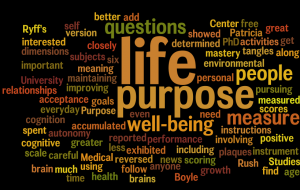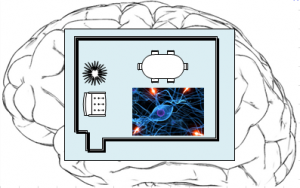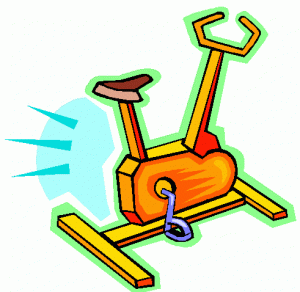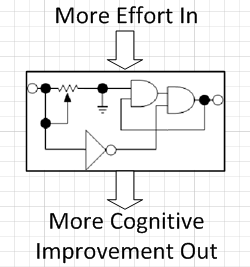Facebook Improves Mental Updating by 25%
An interesting preliminary study from the psychology department at the University of Arizona found that seniors trained to use Facebook showed measurable improvement in their cognitive abilities. More specifically:
“In the follow-ups, those who had learned to use Facebook performed about 25 percent better than they did at the start of the study on tasks designed to measure their mental updating abilities”
Mental updating is the ability to add and delete contents in your working memory. The study included a small group of seniors ages 68-91 with little or no prior Facebook experience. Participants friended only those in their group and made at least one short post daily.
Researchers believe that the constant information updating on Facebook and its relatively complex interface are responsible for the improvement. But more research is needed.
I am interested to hear from readers that use Facebook as a means to boost cognitive performance or maintain brain health.
Categories: Memory and Learning, Mental Focus, Older Adult, Software, Training Tags:
Purpose Boosts Mental Performance & Brain Health
Studies at the Rush University Medical Center involving over 1000 subjects:
“…showed that people who reported greater purpose in life exhibited better cognition than those with less purpose in life even as plaques and tangles accumulated in their brains,” said Patricia A. Boyle, PhD.”
This is great news for anyone interested in improving cognitive performance or maintaining brain health as they age.
 Purpose in life is determined by the meaning you get from everyday activities and how much of your time is spent pursuing goals that are important to you. It can be measured using Ryff’s well-being scale . The instrument measures well-being along six dimensions including autonomy, environmental mastery, personal growth, self acceptance, positive relationships with others and purpose in life. The questions that measure purpose in life are: 5,11,17,23,29,35 and 41. Be careful to follow the scoring instructions closely as the scores for some of the questions need to be reversed before you add them up.
Purpose in life is determined by the meaning you get from everyday activities and how much of your time is spent pursuing goals that are important to you. It can be measured using Ryff’s well-being scale . The instrument measures well-being along six dimensions including autonomy, environmental mastery, personal growth, self acceptance, positive relationships with others and purpose in life. The questions that measure purpose in life are: 5,11,17,23,29,35 and 41. Be careful to follow the scoring instructions closely as the scores for some of the questions need to be reversed before you add them up.
Categories: Cognitive Decline, Memory and Learning, Older Adult, Other, Problem Solving Tags:
Self-Imagination Can Boost Memory
 A new journal on clinical psychological science just launched with some interesting insights into how to improve brain function and cognitive performance. One article, Imaging a Better Memory, suggests that we can improve our ability to memorize if we imagine a scenario that associates the word or concept we want to recall with ourselves.
A new journal on clinical psychological science just launched with some interesting insights into how to improve brain function and cognitive performance. One article, Imaging a Better Memory, suggests that we can improve our ability to memorize if we imagine a scenario that associates the word or concept we want to recall with ourselves.
For example, to remember a long list of words we would imagine ourselves acting out or otherwise embodying each of the words. This is contrasted to techniques where, for example, we think of words that rhyme with the target word, recall the word’s definition or remember a past situation involving the word. The results were decisive:
“For all participants, healthy and memory-impaired, self-imagination boosted free recall of the personality traits more than any of the other strategies did.”
Self-imaging or envisioning yourself acting out or living the idea you want to remember may be a powerful new memory technique. More research is needed to establish the idea scientifically.
I am interested to hear from readers that have used self-imagination to help with a memory task.
Categories: Memory and Learning Tags:
Do You have Special Spaces for Brain Work?
 The environment has a big impact on brain function and cognitive performance. Everything from sound, light, color, spaciousness, odors, temperature and even the clothes we wear impacts focus, creativity, memory and other mental functions. This means that tuning your environment is an important strategy for developing your Next Brain.
The environment has a big impact on brain function and cognitive performance. Everything from sound, light, color, spaciousness, odors, temperature and even the clothes we wear impacts focus, creativity, memory and other mental functions. This means that tuning your environment is an important strategy for developing your Next Brain.
For example, BrainWorld has an interesting post on how to create a comfortable study environment. Four factors are recommended including wear lose clothes, taking healthy snack breaks, remove distractions (e.g. TV and phone) and create a physically comfortable space but not one that invites sleepiness. While these seem like simple ideas (and they are) I am surprised by how many students and clients don’t take the time to optimize their environments for study, learning, creativity or other mental tasks.
I am interested to hear from readers that have special spaces and environments for brain work.
Categories: Memory and Learning Tags:
Instant Memory Boost With 6 Minutes of Exercise
 Researchers at the University of California at Irvine have discovered a new brain boosting effect. Healthy and cognitively impaired subjects 50-85 years old were shown a series of positive images. Some of them rested while others exercised on a stationary bike at 70% capacity for six minutes. Then:
Researchers at the University of California at Irvine have discovered a new brain boosting effect. Healthy and cognitively impaired subjects 50-85 years old were shown a series of positive images. Some of them rested while others exercised on a stationary bike at 70% capacity for six minutes. Then:
“One hour later, the participants were given a surprise recall test on the previously viewed images. Results showed a striking enhancement of memory by exercise in both the healthy and cognitively impaired adults, compared with subjects who did not ride the bike.”
While the mechanism at work is not understood, the technique can easily be adapted by anyone looking to enhance memory performance: Intersperse your learning efforts with short bursts of moderately intense physical activity.
I am interested to hear from readers that use physical activity to get immediate improvements in cognitive performance.
Image Source: Stationary Bike
Categories: Cognitive Decline, Memory and Learning, Older Adult Tags:
Exercise Boosts Brain In Proportion to Effort Made
 We have reported many times in the Next Brain Blog on scientific studies that suggest exercise improves brain function and cognitive performance. Now a new study led by the director of the Montreal Heart Institute suggests that the more exercise you do the more cognitive improvement you see. The study focused on overweight and inactive adults that were 49 years old on average. A summary of the results:
We have reported many times in the Next Brain Blog on scientific studies that suggest exercise improves brain function and cognitive performance. Now a new study led by the director of the Montreal Heart Institute suggests that the more exercise you do the more cognitive improvement you see. The study focused on overweight and inactive adults that were 49 years old on average. A summary of the results:
“After four months of high-intensity interval training, heart patients in Juneau’s study had markedly improved cognitive functions: the ability to think, recall, and make quick decisions. Even more exciting is that the study demonstrated that the more exercise patients could tolerate, the better their results—their minds became “sharper.”
While there is surely some limit to this effect, it does suggest that increasing the duration/intensity of your workout could lead to an increased brain boost.
Categories: Memory and Learning, Older Adult, Problem Solving, Training Tags:
Does Dental Hygiene Impact Brain Health?
 Can brushing your teeth, wearing dentures or otherwise taking care of your teeth and gums protect memory and brain health? One recent study suggests the answer is yes, and the impact can be significant:
Can brushing your teeth, wearing dentures or otherwise taking care of your teeth and gums protect memory and brain health? One recent study suggests the answer is yes, and the impact can be significant:
“It was found that men with inadequate oral hygiene habits who did not wear dentures had a 91% greater risk of dementia than those with adequate oral hygiene habits.”
The key health behaviors are regular brushing and visits to the dentist.
While more research in needed, this is the first study that I have seen that suggests dental health behaviors could be important to building or maintaining or your next brain.
I am interested to hear from readers about other studies. Are there other oral hygiene techniques we should consider as tools for improving brain function or cognitive performance?
Categories: Cognitive Decline, Lifestyle, Memory and Learning, Older Adult Tags:
Multivitamin Improves Memory in Older Men
 That is the conclusion of one study carried out on 51 men ages 50-74.
That is the conclusion of one study carried out on 51 men ages 50-74.
“The results showed multivitamin supplementation, compared to placebo, significantly improved recognition memory performance, although other cognitive function parameters did not differ between the treatment groups.”
The study goes on to suggest it might also help avoid age-related cognitive decline.
I am interest to hear from readers that use multivitamins to improve brain function or cognitive performance.
Categories: Cognitive Decline, Diet, Memory and Learning, Older Adult Tags: vitamins
Use Clothes to Improve Cognitive Performance
 There are small things we can do with our bodies to improve brain function and cognitive performance in real-time. I have documented many of these techniques on the Cognitive Design blog and you can find them under the tag embodied cognition. Some examples:
There are small things we can do with our bodies to improve brain function and cognitive performance in real-time. I have documented many of these techniques on the Cognitive Design blog and you can find them under the tag embodied cognition. Some examples:
- Holding objects can improve certain types of reasoning and recall
- Walking can improve thinking
- Clenching muscles amplifies will power
- Stepping back from a difficult situation can trigger higher cognitive functions
- Feeling warm or cold primes our emotional judgments about other people
- Swaying back and fourth can improve reflection
- Making hand gestures can improve learning and recall
- Short duration physical breaks (e.g. playing catch) between sessions improves conceptual learning
- Body posture impacts how confident we are about our beliefs and thinking abilities.
So our minds work in part by the way we use our bodies. Now new research indicates that cognitive performance can also be tuned by the clothing we put on our bodies or so-called enclothed cognition. For example:
“If you wear a white coat that you believe belongs to a doctor, your ability to pay attention increases sharply. But if you wear the same white coat believing it belongs to a painter, you will show no such improvement.”
Our cognitive performance improves when we believe we are wearing smart clothes!
I am interested to hear from readers that use clothes that they believe make them smarted. Could be tie, top or outfit you wear to perform well on a test or during an interview. Please describe it and explain why it works.
Categories: Manage Emotions, Memory and Learning, Mental Focus Tags:
Good Grades are Mostly Determined by Self-Control
 I am often asked by parents what type of skills are critical for success in school. They hear about special programs or techniques for reading, note taking or math skills and want to know if they work. That is why I am always on the lookout for scientific research that probes how the mind’s of high-performing students work.
I am often asked by parents what type of skills are critical for success in school. They hear about special programs or techniques for reading, note taking or math skills and want to know if they work. That is why I am always on the lookout for scientific research that probes how the mind’s of high-performing students work.
For example, recent research on nearly 700 German eighth graders suggests that a student’s level of self-control is the number one factor that determines success. It is more important than memory, general intelligence, verbal ability, mental speed, numerical ability and even creativity. The researchers claim:
“The data show that the most important factor in getting good school grades was the student’s score on psychological tests of self-control. Cognitive ability was the next best predictor of grades, but in fact, it was not a very strong one.”
While not a surprise to readers of the Next Brain Blog, this is an important finding. Delaying gratification, managing procrastination and the ability to structure and manage time are the capacities that students need for success.
I am interested to hear from readers with insights into how to be an effective student. What learning and testing taking skills are critical and how can we develop them?
Categories: Child, Cognitive Development, College Student, IQ and EQ, Memory and Learning, Training Tags:

